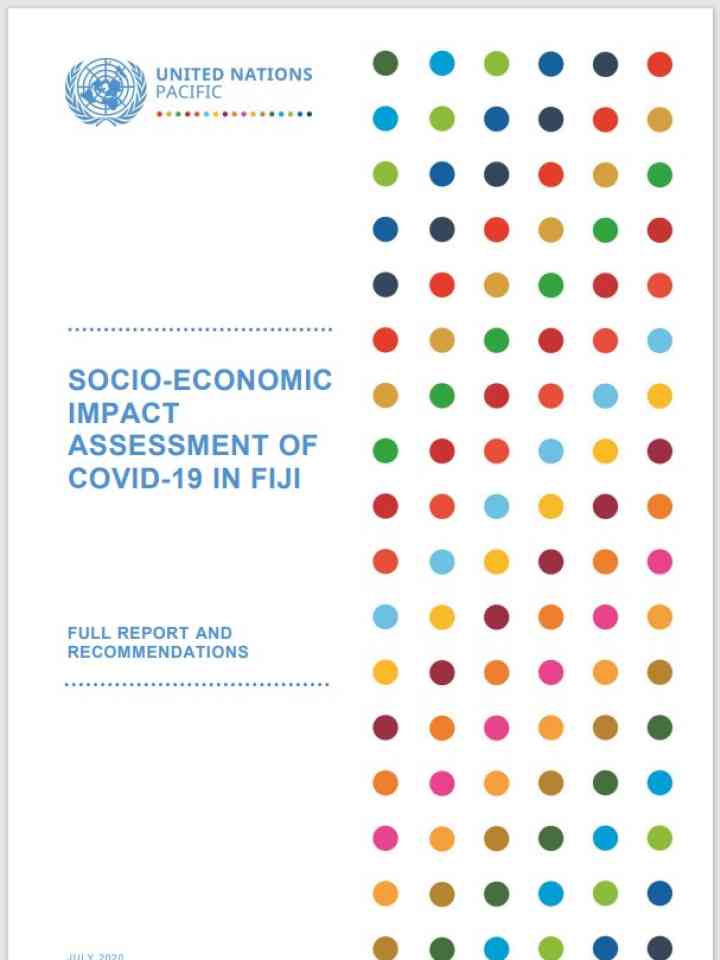Socio-Economic Impact Assessment of COVID-19 in Fiji
Although Pacific Island countries (PICs) such as Fiji have recorded a smaller number of cases of COVID-19, governments have been quick to implement public health emergency measures including lockdowns, curfews and physical distancing, travel restrictions, and international border closures to prevent imported cases of the virus. The Pacific region, characterized by a strong dependence on tourism revenues has suffered immensely from border closures and lockdowns, with knock-on effects for overall economic activity, supply chain disruptions and job losses.
The assessment is guided by the UN Secretary General’s Framework for the Immediate Socioeconomic Response to COVID-19 which sets out the framework for the UN’s urgent socioeconomic support to countries and societies in the face of COVID-19, putting in practice the UN Secretary-General’s Shared Responsibility, Global Solidarity report on the same subject.
It is one of three critical components of the UN’s efforts to save lives, protect people, and rebuild better, alongside the health response, led by the World Health Organization (WHO) through the Joint Incident Management Team (JIMT), and the humanitarian response, as detailed in the UN-led Pacific Humanitarian Response Plan (PHRP).
Explore further
